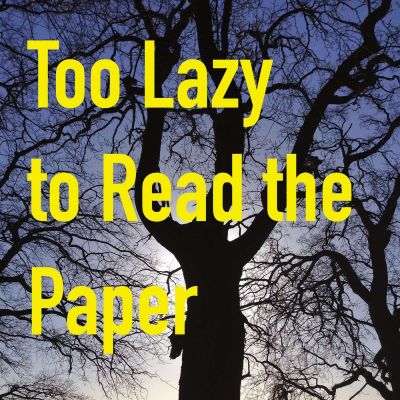In this podcast the author explains a paper to me, your host, Professor Sune Lehmann (https://sunelehmann.com). The participants are authors of a paper in network science or data science. Sometimes I feature a group of co-authors! The intended audience is PhD students, PostDocs and other scientists. The idea is to start with a bit about the paper's author, the idea for the paper. Then talk about the research itself. And we’ll end by gossiping about the reviewing process, etc. The whole thing is based on the idea that papers are so formal. And that when two people talk to each other informally, it’s often more fun – and tends to get ideas across more effectively.
https://toolazy.buzzsprout.com
episode 3: Aniko Hannak - The Path to Complexity and Beyond
Today’s guest is Aniko Hannak. But for reasons I forgot to ask her in the podcast, everyone calls her Ancsa.
Anyway, Ansca is an Assistant Professor at the computer science department of the University of Zürich (1).
Ancsa’s work investigates a variety of content serving websites such as Search Engines, Online Stores, Job Search Sites or Freelance Marketplaces.
In this quickly changing online ecosystem, companies track users' every move and feed the collected data into big data algorithms in order to match them with the most interesting, most relevant content. Since these algorithms learn on human data they are likely to pick up on social biases and unintentionally reinforce them.
In her PhD work, Ancsa created a methodology called Algorithmic Auditing which tries to uncover the potential negative impacts of large online systems.
In our conversation - we talk about her background in math, sociology, and computer science, how she was “too lazy to read” an important book, how a kind gesture from Laszlo Barabasi changed her life, and finally we go deep - exploring both the why and the how of Ancsa’s pioneering work which lead to the idea of algorithmic auditing. We end up talking about her recent paper “Understanding Inequalities in Ride Hailing Services Through Simulations” which in some ways is a reaction to the limitations of algorithmic auditing (2).
PS This is part one of a mini-series exploring the topics of algorithms & filter bubbles. Later installments will feature Piotr Sapiezynski, and Alan Mislove.
---
References:
(1) http://ancsahannak.me
(2) https://www.ncbi.nlm.nih.gov/pmc/articles/PMC7162900/
